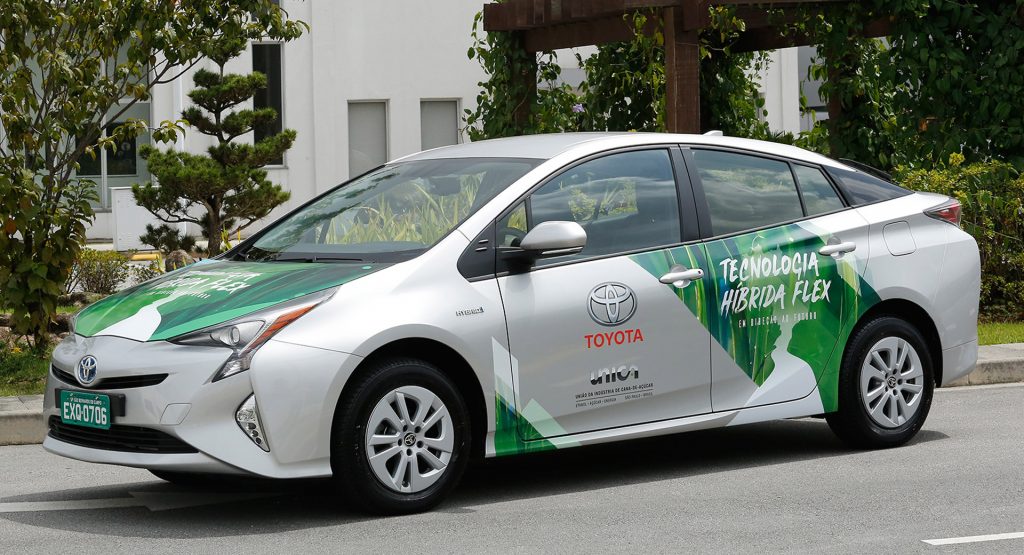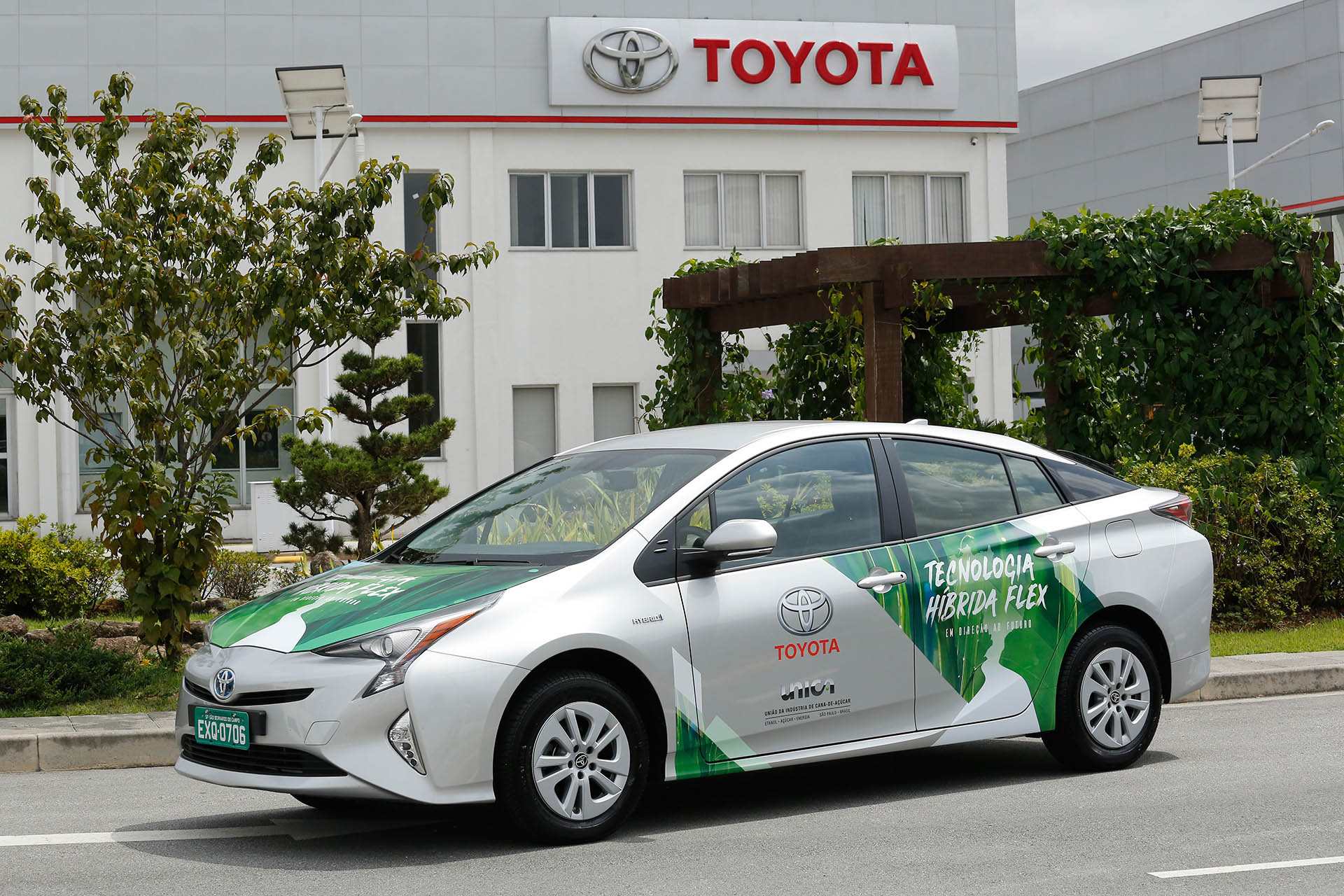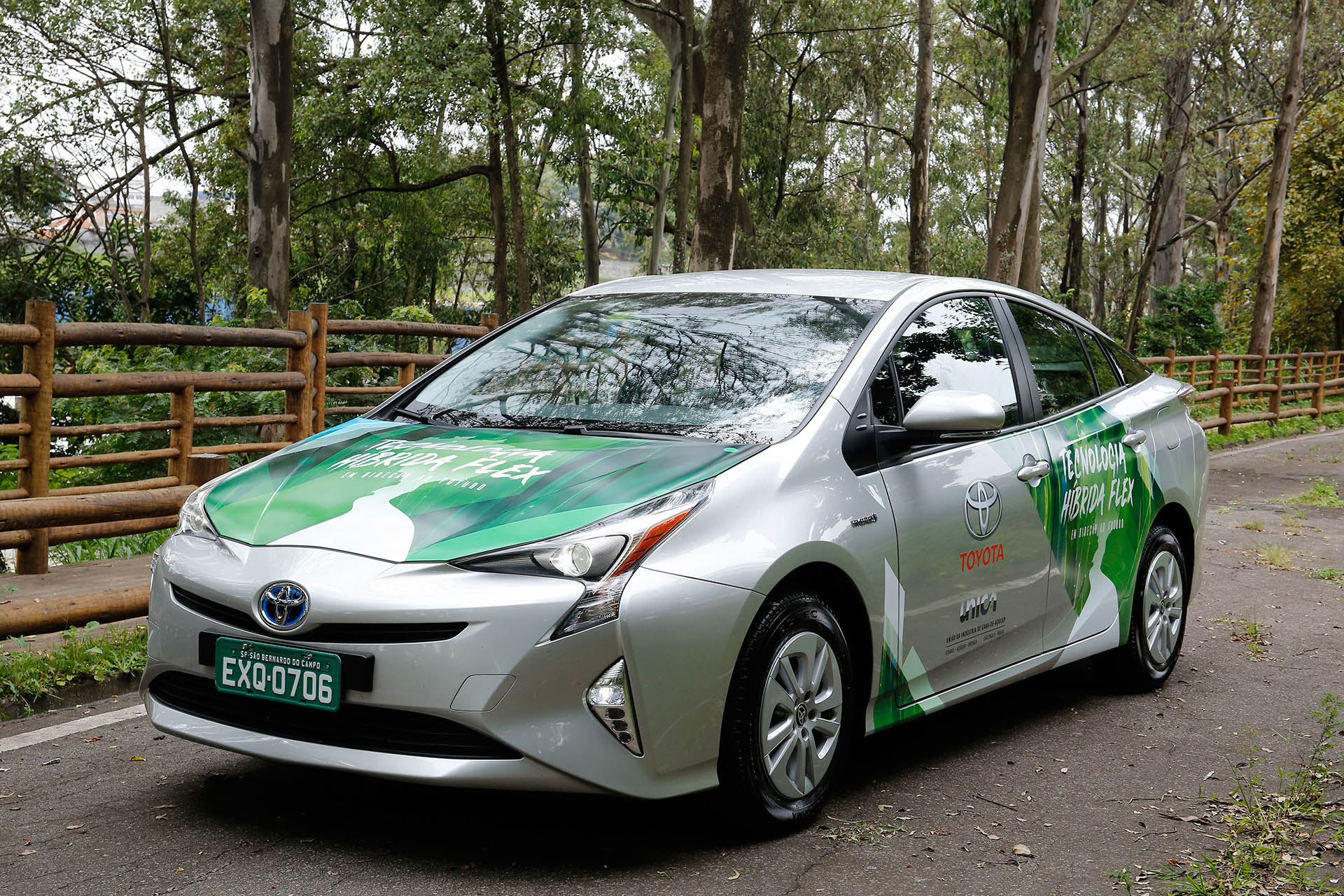Sift through all the various “environmentally friendly,” renewable alternative propulsion methods proliferating throughout the automotive industry today, and two that you’ll find are hybrids and flex-fuel vehicles. Now Toyota’s bringing them together.
This Prius prototype works mostly like any other, with an electric motor and an internal-combustion engine working in tandem. But instead of burning gasoline, that internal-combustion engine runs on ethanol.
Billed as the first of its kind, the prototype is being developed by Toyota do Brasil. The automaker’s local division unveiled it today in Sao Paulo to government leaders, university researchers, and agricultural industry representatives.
“The invention demonstrates our journey in providing a new mobility society,” said Steve St. Angelo, CEO for Toyota’s Latin American region. “I am very proud of our Toyota do Brasil engineers that worked closely with our engineers in Japan to develop the world’s cleanest hybrid vehicle that uses ethanol for our Brazilian customers.”
So why ethanol, you ask, and why Brazil? The fuel source is entirely renewable, leaving the vehicle running without a drop of fossil fuel (like gasoline or diesel). And the South American country is the world’s second largest producer of ethanol fuel, behind only the United States. But where corn-based ethanol has struggled to pick up in the US, the use of sugarcane-based ethanol in Brazil is widespread. And it has been for decades, thanks largely to the efficiency of local harvesting and production technologies – not to mention wholehearted government support.
Brazil’s leadership in the use of ethanol as fuel made it the perfect place to develop the prototype. We have our doubts as to whether it’d make sense outside of Brazil (and its neighboring countries). But even if only for local consumption, it could prove worthwhile. The automaker will continue testing the hybrid flexible-fuel vehicle in Brazil to see how it pans out.





